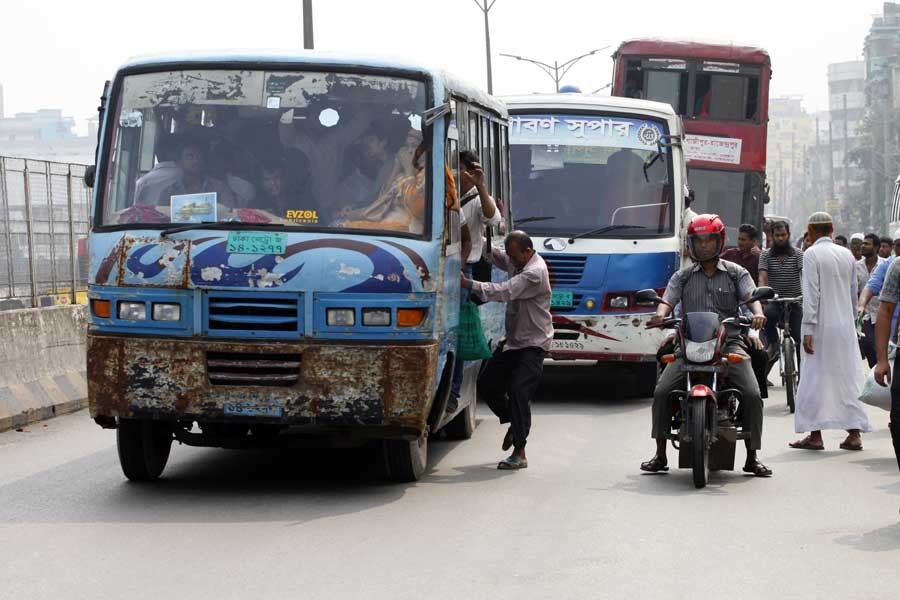The United Nations Committee for Development Policy recommends on February 27 that Bangladesh be formally recognised as a developing nation in 2026. Had there been no pandemic, the formal transition would have taken place two years earlier in 2024. Coming as it does on the eve of the country's 50th anniversary of independence, the news from the UN CDP is doubly celebratory.
With the country fulfilling for the second time all three criteria by quite good margins, the recommendation will have to be followed up by endorsement by the UN Economic and Social Council and finally approved by the UN General Assembly scheduled for next June and September respectively.
It surely is an enviable achievement to shed the Least Developed Country (LDC) tag. But there is nothing to brag over the feat. Everyone has to accept it with humility. Nepal and Lao PDR have also been recommended for graduation to the developing status along with Bangladesh, with Nepal fulfilling the criteria in 2018. Even Myanmar and Timore-Leste have to their credit this achievement. Myanmar's case has been deferred because of the army takeover and its possible negative consequences on that country's economy. These two countries' cases have been deferred for further review in 2024.
No doubt, the country's image will rise to a new high but one irritating question needs to be answered during the five years before the transition takes place. Can every Bangladesh citizen -- even the most marginalised in society --expect a change for better in his/her lot? In economic parlance, will the transition be inclusive enough for the country to witness a reasonable improvement in the standard of living of the hapless and neglected at the bottom rung of society?
This is unlikely to happen so long as the country's economy follows the capitalist model of wealth accumulation. In the wealthiest country on this planet, billionaires have accumulated fabulous amount of wealth amid the raging pandemic, so have most billionaires and the superrich in other countries like China and India. Even this country has seen a similar development. The prediction is that the world may get its first trillionaire in Jeff Bezos in 2026 and he is likely to be followed by Chinese real estate tycoon Xu Jiayin in 2027, by Alibaba's Jack Ma in 2030 and by Mukesh Ambani of India in 2033. There will be more to follow them.
Now pitted against this monopolistic development is a highly tragic piece of news that concerns the death of 30,000 Americans from various economic impacts other than Covid-19 right at the time the US billionaires were garnering wealth. Evidently, the causes of such deaths have been just a misnomer of starvation. This has happened in most other countries where joblessness has even driven a large number of people to commit suicide.
The problem lies with the development paradigm. For example, per capita income in Bangladesh was $1,827 in 2020, which is much higher than the UN-set threshold of $1,230. Now how the country's income is distributed matters most. Clearly, there were before the coronavirus attack extreme poor who had to be brought under the food safety network. During the prolonged general holiday -- a euphemism for lockdown -- a huge army of the unemployed joined them. Without food aid these people could not survive and to the government's and voluntary organisation's credit, they reached the needy in time.
So what does this pandemic expose is the economic vulnerability of a large number of people in the face of adversities. Income distribution is not even remotely rational in a capitalist system. Most concerning is the fact that the disparities has yawned even further with the pandemic taking a toll on the country's economy. The percentage of people living below the poverty line is predicted to push up from 21 per cent to about 42 per cent. Can this economic haemorrhage have any easy cure?
The fact is that national affluence does not necessarily reflect the misery and travails the less privileged suffer. Even a beggar in the city earns more than the poor in society. Without inclusive development based on reasonable education, healthcare, nutrition, opportunities for income for all including new entrants and enough savings for the rainy days, the living standard of people cannot reach a desired level.
Much as the transition may take the nation out of the LDC status, there is no guarantee that the journey to the destination will be equally happy for all. If wealth continues to get concentrated in a few hands, sharks like PK Halder, business syndicates, loan defaulters, share market manipulators, money launderers and the privileged and the influential are allowed the loopholes to bleed the economy, the poor will ever be deprived of economic and social justice. An average income is a gross misrepresentation of the economic status of the poor.
So far as the Human Asset Index (HAI) is concerned, the same principle applies and the status of the landless, slum dwellers, floating people is left ignored. Bangladesh has a score of 75.3 points in this index against a requirement of 66. As for Economic Vulnerability Index (EVI), the score has to be below 32 and Bangladesh's score is 27.3. But as already argued, the vulnerability of a significant proportion of the population has been sorely exposed by the pandemic.
There is, therefore, no alternative to a paradigm shift in development. It is to be all-inclusive with special focus on amelioration of the socio-economic status of the underprivileged segment of society.


